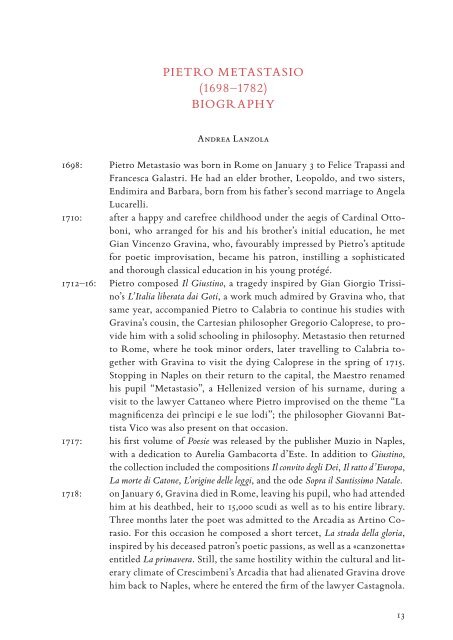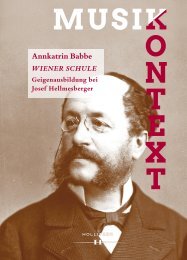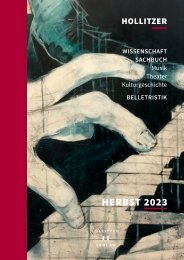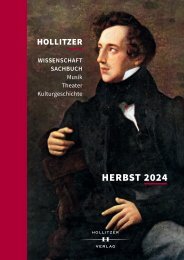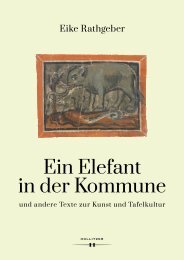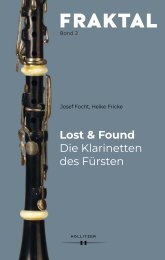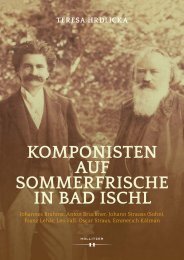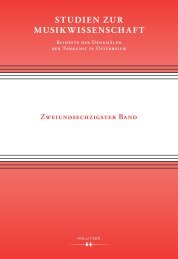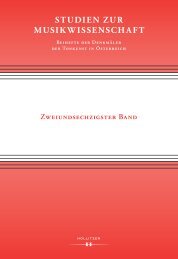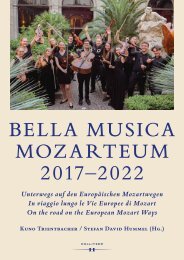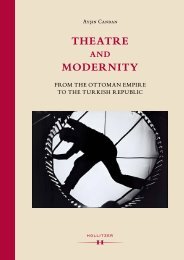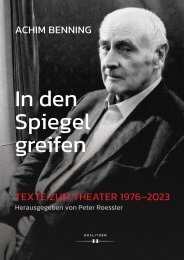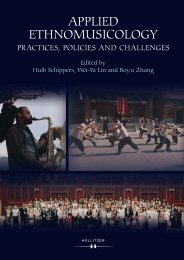Create successful ePaper yourself
Turn your PDF publications into a flip-book with our unique Google optimized e-Paper software.
PIETRO METASTASIO<br />
(1698–1782)<br />
BIOGRAPHY<br />
Andrea Lanzola<br />
1698: Pietro <strong>Metastasio</strong> was born in Rome on January 3 to Felice Trapassi and<br />
Francesca Galastri. He had an elder brother, Leopoldo, and two sisters,<br />
Endimira and Barbara, born from his father’s second marriage to Angela<br />
Lucarelli.<br />
1710: after a happy and carefree childhood under the aegis of Cardinal Ottoboni,<br />
who arranged for his and his brother’s initial education, he met<br />
Gian Vincenzo Gravina, who, favourably impressed by Pietro’s aptitude<br />
for poetic improvisation, became his patron, instilling a sophisticated<br />
and thorough classical education in his young protégé.<br />
1712–16: Pietro composed Il Giustino, a tragedy inspired by Gian Giorgio Trissino’s<br />
L’Italia liberata dai Goti, a work much admired by Gravina who, that<br />
same year, accompanied Pietro to Calabria to continue his studies with<br />
Gravina’s cousin, the Cartesian philosopher Gregorio Caloprese, to provide<br />
him with a solid schooling in philosophy. <strong>Metastasio</strong> then returned<br />
to Rome, where he took minor orders, later travelling to Calabria together<br />
with Gravina to visit the dying Caloprese in the spring of 1715.<br />
Stopping in Naples on their return to the capital, the Maestro renamed<br />
his pupil “<strong>Metastasio</strong>”, a Hellenized version of his surname, during a<br />
visit to the lawyer Cattaneo where Pietro improvised on the theme “La<br />
magnificenza dei prìncipi e le sue lodi”; the philosopher Giovanni Battista<br />
Vico was also present on that occasion.<br />
1717: his first volume of Poesie was released by the publisher Muzio in Naples,<br />
with a dedication to Aurelia Gambacorta d’Este. In addition to Giustino,<br />
the collection included the compositions Il convito degli Dei, Il ratto d’Europa,<br />
La morte di Catone, L’origine delle leggi, and the ode Sopra il Santissimo Natale.<br />
1718: on January 6, Gravina died in Rome, leaving his pupil, who had attended<br />
him at his deathbed, heir to 15,000 scudi as well as to his entire library.<br />
Three months later the poet was admitted to the Arcadia as Artino Corasio.<br />
For this occasion he composed a short tercet, La strada della gloria,<br />
inspired by his deceased patron’s poetic passions, as well as a «canzonetta»<br />
entitled La primavera. Still, the same hostility within the cultural and literary<br />
climate of Crescimbeni’s Arcadia that had alienated Gravina drove<br />
him back to Naples, where he entered the firm of the lawyer Castagnola.<br />
13


